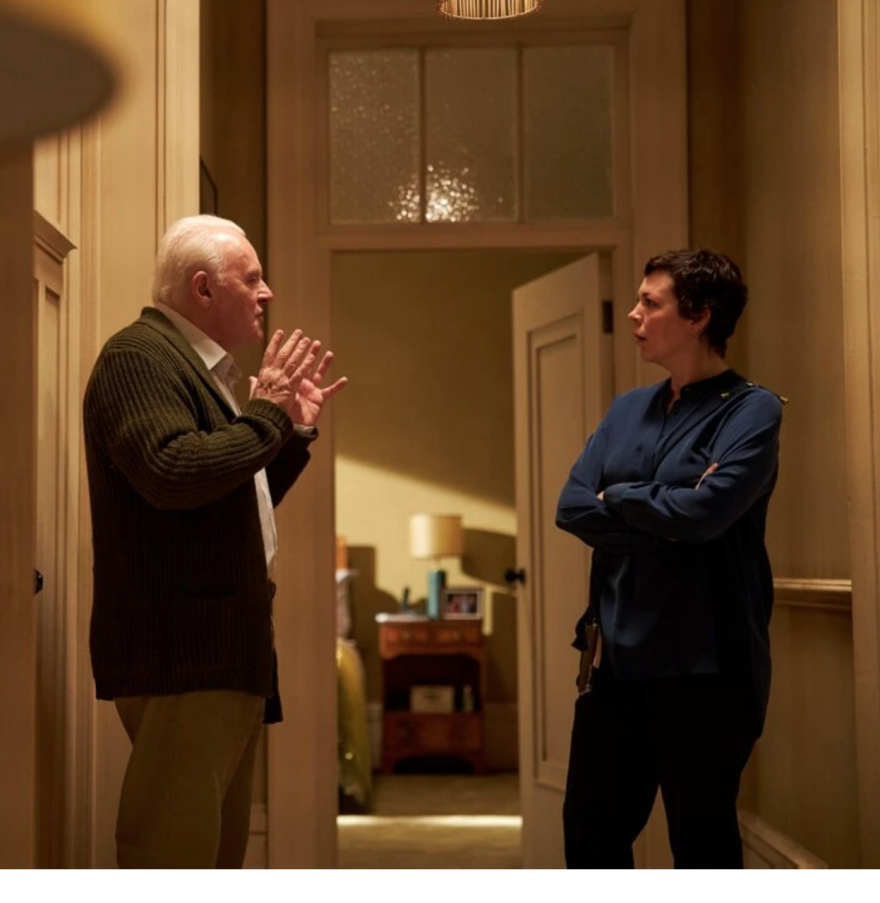We are coming to the end, we hope, of a melancholy season. There are a number of films in theatres and streaming currently which deal with the slow winding down of a life and the effect it has on family. Include in that Lee Isaac Chung’s Minari, a memoir of a Korean family’s move to farm in Arkansas in the 1980s, and Falling, actor turned director Viggo Mortensen’s story of a grown gay son coping with a hateful father in Los Angeles. The best of them is The Father, with Anthony Hopkins, like us, cooped up in his apartment and losing his sense of what’s what and who’s who.
Some years ago, I interviewed Anthony Hopkins at the Locarno film festival in Switzerland. He was 69 then and said that at the turn of the millennium he had arrived at a place where he no longer cared what people thought. He'd ended his marriage of 30 years, ran off and married a San Francisco antiques dealer, gave up his British passport and became an American citizen. I met him shortly after he made The World’s Fastest Indian, in which he played Burt Munro, the New Zealander who rebuilt a 1920s Indian motorcycle and set land speed records at the Bonneville Salt Flats.

Now 83, Hopkins has set something of his own land speed record, making 25 films in the last decade, from Beowulf to Wolfman, Hitchcock to Thor, where he played Odin and then Methuselah in Noah, an actor in Richard Eyre’s The Dresser, King Lear, and took home an Oscar nomination a year ago as Pope Benedict XVI, with a spectacular scene of surrender to Jonathan Pryce as Cardinal Bergoglio in The Two Popes.
In French playwright turned director Florian Zeller’s The Father, which I saw a year ago at the 2020 Sundance Film Festival, my last major bricks and mortar theatre experience (it later played the Toronto virtual film festival), Hopkins is just a father, could be anyone’s father, this one named Anthony, living in London, perhaps once an executive or a professional. Now, he’s looked after by his daughter, Anne, played by Olivia Colman, and flailing in dementia as if he’d broken the ice on a frozen pond. Hopkins is doing something more than his Welsh countrymen Dylan Thomas’ “raging against the dying of the light.” His Anthony in The Father is meant to be King Lear in a cardigan, losing his faculties, and like Lear giving way to his one daughter, Anne, and the ghost of another daughter, while struggling to maintain his kingdom, his flat, against all intentions to the contrary, good, bad or indifferent.
Film Ciip
Dec 31, 1937, as you just heard Anthony, the father, tell a social worker, is Hopkins’ date of birth as well, which fits Zeller’s storytelling methods, very sharply adapted here by Christopher Hampton from Zeller’s stage play, of shifting memory, frames of reference, scenes that are shuffled in front of us and replayed with different characters or actors, all meant to mirror Anthony’s descent into a chaos he can’t manage and which we experience. Hampton’s previous adaptations have been middling from Carrington and The Secret Agent to the very good Atonement and Dangerous Liaisons. Here he’s beautifully fluid and matched by the savvy camerawork of Ben Smithard, editing by Yorgos Lamprinos and score by Ludovici Einaudi, all of which elements shift from light to dark, from fast to slow, from the familiar to the foreign and never miss a beat.
There have been earlier films about the slide into dementia, Amour, the Michael Haneke film with aging French superstars Jean Louis Trintignant and Emmanuelle Riva, which won best foreign film for 2012, and Irisin 2001 with Judi Dench. The Father is in the same generational family as Christopher Nolan’s breakthrough second film, Memento, in 2000, with Guy Pierce scribbling notes to himself to keep current in a lethal world. Bring that forward now to Anthony, who is widowed, emotionally rough, vain, transparently manipulative, charming as needed, randomly kind -- the film hints that’s the best he ever managed as a parent -- and now utterly lost and compellingly childlike.

As Anne, the daughter he confuses with a dead daughter he prefers, Colman has pivoted from whence you saw her as Queen Elizabeth on the Netflix series, The Crown, to parse the dilemma of the grown child: stay or go, and how? Zeller has made this dance we know all too well perhaps from our own lived experience. The Father takes us through the fright, and the consciousness of losing what and who we think we are and know. As the film’s point of view shifts, we see what they see fractured into shards. But fundamentally when it comes to a dying generation and its successor, we see it from both sides now. Both Hopkins and Colman should stand up and be counted when it comes to Oscar nominations.
The Father is a work for grownups. If you ‘ve been on one side of the equation, it makes you tremble for the predicate.




